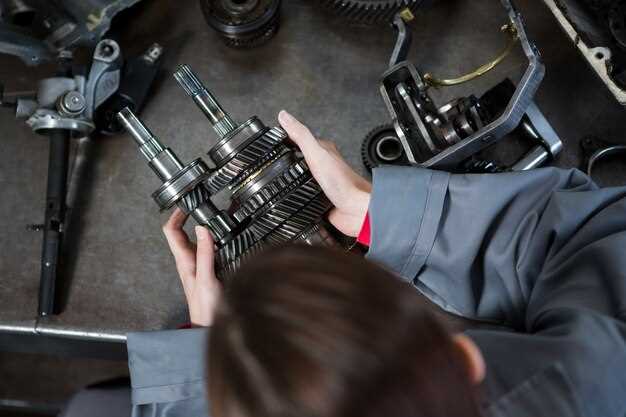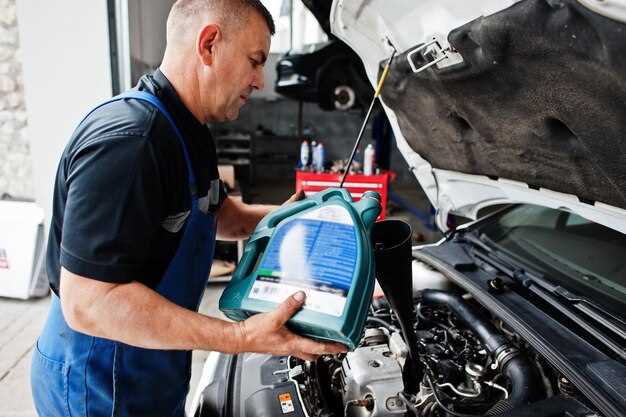
The efficiency and longevity of diesel engines rely heavily on regular maintenance practices. Proper care not only enhances performance but also helps in avoiding costly repairs. By understanding the fundamental aspects of diesel engine maintenance, operators can ensure their engines run smoothly and efficiently.
Regular oil changes are crucial for preventing engine wear and tear. Diesel engines operate under high pressure and temperature, making it essential to use quality oil that meets or exceeds the manufacturer’s specifications. Changing the oil and oil filter at recommended intervals helps in maintaining optimal lubrication and performance.
Another vital aspect of maintenance is the fuel system. Diesel engines require clean fuel to operate efficiently. Regularly inspecting and replacing the fuel filters ensures that any contaminants are removed, preventing potential damage to the injectors and other crucial components. Moreover, monitoring fuel quality can significantly enhance engine performance and fuel economy.
Additionally, proper attention to the cooling system is important. Diesel engines generate considerable heat, and an efficient cooling system prevents overheating, which can lead to severe engine damage. Regularly checking coolant levels and inspecting hoses for leaks are essential practices that contribute to the engine’s health.
Regular Oil Change Intervals and Quality Standards

Maintaining the longevity and efficiency of diesel engines necessitates adhering to a strict oil change schedule. Regular oil changes are critical as they ensure that the engine is properly lubricated, reducing wear and tear on vital components. Typically, oil change intervals should be based on the manufacturer’s recommendations, which can range from every 5,000 to 15,000 miles, depending on the engine design and usage conditions.
In addition to mileage, factors such as driving conditions, load, and type of diesel fuel used can affect oil life. For example, engines operating under heavy loads or in extreme conditions may require more frequent oil changes. Monitoring the oil’s condition through routine checks can help determine if an earlier change is necessary.
Equally important is the quality of the oil used. Selecting high-quality diesel engine oil that meets or exceeds the specifications outlined by the engine manufacturer ensures optimal performance. These specifications often include standards set by organizations such as the American Petroleum Institute (API) and the Society of Automotive Engineers (SAE). Using oils that meet these standards helps ensure compatibility and effective protection against sludge and abrasive particles.
Moreover, the right oil viscosity is crucial for maintaining proper engine function. Different conditions require different viscosities; therefore, it is imperative to reference the engine’s manual when selecting oil. The correct filter also plays a significant role in maintaining oil quality by trapping contaminants that could otherwise circulate within the engine.
Implementing a rigorous schedule for oil changes, choosing the right oil, and adhering to quality standards are fundamental aspects of diesel engine maintenance that contribute to improved performance and longevity.
Monitoring and Replacing Fuel Filters to Prevent Clogging
Fuel filters play a critical role in the performance and longevity of diesel engines. These components are designed to trap contaminants and impurities in the fuel, ensuring that only clean fuel reaches the engine. Regular monitoring and timely replacement of fuel filters are essential practices to prevent clogging and maintain optimal engine functionality.
Scheduled Inspections should be part of your routine maintenance plan. Checking fuel filters for signs of dirt accumulation or discoloration can provide early warnings of potential issues. It is advisable to inspect the filters every 5,000 miles or as recommended by the manufacturer. If the engine begins to exhibit performance problems, such as rough idling or decreased power, examine the fuel filter immediately.
Understanding Replacement Intervals is crucial. While some diesel engines have long-lasting filters, others may require more frequent changes. Consult your owner’s manual for specific recommendations based on your engine type and driving conditions. Generally, replacing the fuel filter at least once a year is a good practice, regardless of mileage.
When performing a filter replacement, ensure that you are using high-quality filters that meet the manufacturer’s specifications. Using inferior quality components can lead to inadequate filtration and increased engine wear. Moreover, during the replacement process, always bleed the fuel system to remove any air pockets, which can cause performance issues.
Post-Replacement Checks are equally important. After changing the fuel filter, monitor the engine’s performance for any irregularities. Unusual vibrations, sounds, or warning lights may indicate that further investigation is needed. Keeping track of fuel quality and cleanliness can aid in identifying recurring clogging issues, leading to a more effective maintenance strategy.
In summary, maintaining the health of your diesel engine requires vigilance regarding fuel filters. By incorporating regular inspections, adhering to replacement schedules, and ensuring quality components, you can prevent clogging and enhance the overall efficiency of your engine.
Importance of Routine Inspections for Cooling Systems

Routine inspections of cooling systems in diesel engines are essential to ensure optimal performance and longevity of the engine. The cooling system plays a crucial role in managing engine temperature, preventing overheating, and maintaining efficient operation. Regular checks help identify potential issues before they escalate into major problems.
One key aspect of inspections is checking coolant levels and quality. Low coolant levels can lead to insufficient heat dissipation, resulting in engine damage. Contaminated coolant can also cause corrosion in critical components such as the radiator and water pump. Monitoring coolant condition helps in maintaining the necessary protective properties against corrosion and overheating.
Another critical element during inspections is examining hoses and connections for leaks, cracks, or wear. Rubber hoses can deteriorate over time, leading to coolant leaks, which compromise the cooling system’s efficiency. By identifying these issues early, costly repairs and unexpected breakdowns can be avoided.
Inspections should also include the assessment of the radiator and thermostat function. A clogged radiator can impede airflow, reducing its ability to cool the engine effectively. Ensuring that the thermostat operates correctly guarantees that the engine reaches its optimal operating temperature, enhancing performance and fuel efficiency.
Additionally, routine maintenance of the cooling system includes flushing and replacing the coolant at recommended intervals. This process prevents the buildup of deposits that can impede fluid flow and system efficiency. Regular flushing also removes contaminants, ensuring the cooling system operates smoothly and effectively.
In conclusion, routine inspections of cooling systems in diesel engines are vital for preventing overheating, protecting engine components, and ensuring efficient operation. Taking proactive measures through regular inspections can significantly extend the life of the engine and reduce repair costs over time.




